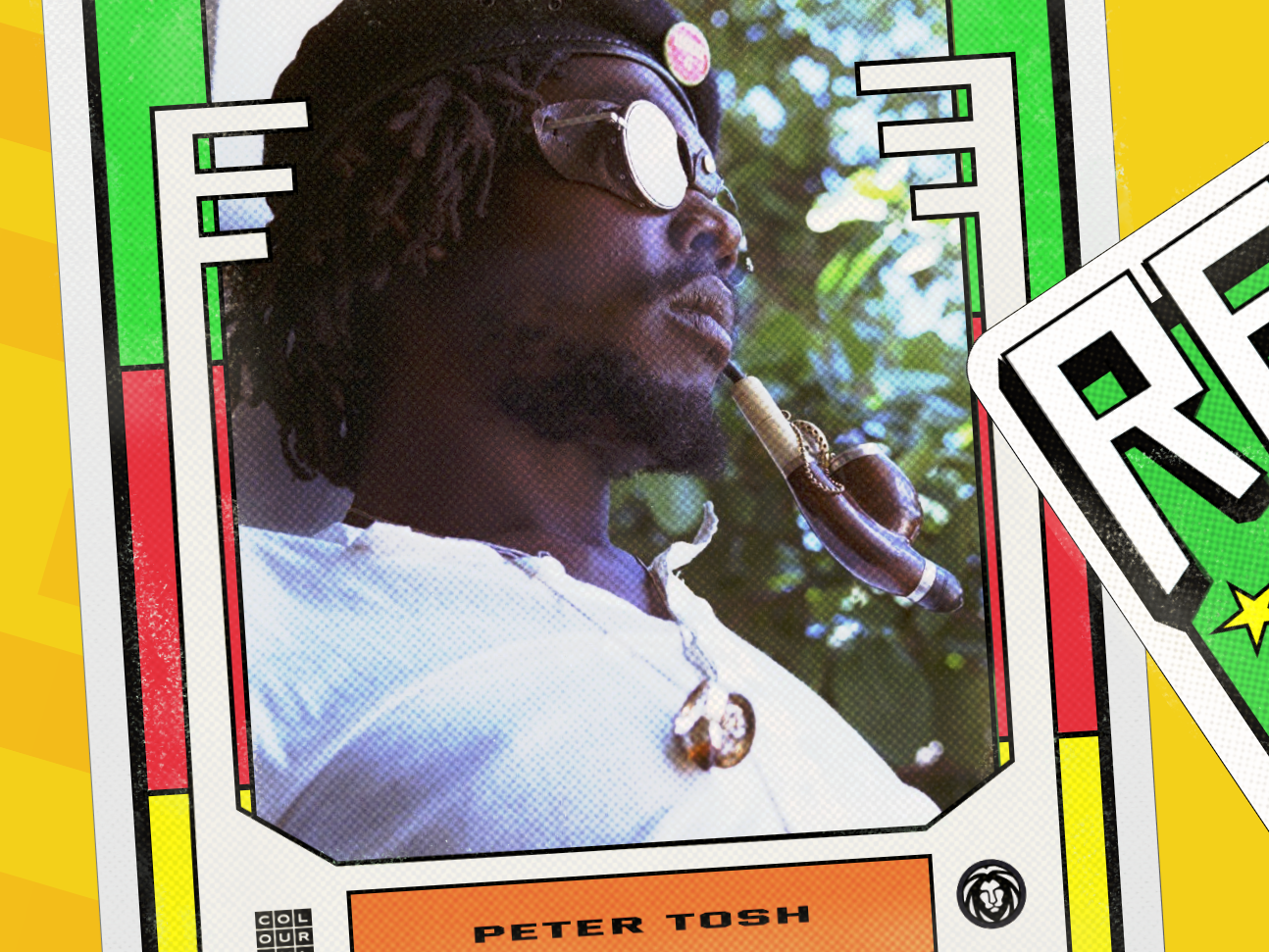Peter Tosh was born Winston Hubert McIntosh on October 19, 1944, in the small rural village of Grange Hill, Jamaica. Tosh left home at the age of 15 and headed for Kingston where he first learned to play the guitar after watching a man play captivated him.
He was a natural and, after watching the man play he was able to play the song back to him. When the man asked him who taught him to play; McTosh told him that he had.
In 1963, Tosh met Robert Nesta Marley and Neville O'Reilly Livingston through his vocal teacher Joe Higgs. The trio joined forces taking lessons on harmonies and musicality from Higgs.
By '64, they were known by the Wailing Wailers and were joined by Junior Braithwaite a falsetto singer, and backup singers Beverley Kelso and Cherry Smith. Tosh was the only one who knew how to play an instrument and inspired his band members to learn to play.
Success was immediate. The group's debut single "Simmer Down" was an instant hit and the band's career was off and running. Tosh's talent did not end with his vocal skills as he was also an excellent guitarist; first highlighted in 1963 on the Wailers' single "I'm Going Home." He was also a gifted songwriter.
In 1971, Tosh made the decision to pursue a true solo career in conjunction with his work with the Wailers. His debut single, "Maga Dog," was cut with producer Joe Gibbs. The song had initially recorded by the Wailers with Coxsone Dodd and, in its original rhythm arrangement, was often compared to "Simmer Down."
The single was a major hit and became a favourite of the DJs, with a flood of versions quickly following. The equally hard-hitting "Dem Ha Fe Get a Beating" arrived soon after.
As the Wailers' international breakthrough started, Tosh had less time to devote to his solo career. A few singles did arrive during 1972 including "No Mercy" and "Can't Blame the Youth." More followed in 1973, among them "Mark of the Beast," "Foundation," "What You Gonna Do," and a re-recording of "Pound Get a Blow," which made a significant impact on the Jamaican radio networks.
At the end of the Wailers' 1973 UK tour, Livingston announced he would no longer tour outside of Jamaica with the band. In 1975, Tosh signed to the Columbia label in the US and began working on his first solo album. The album arrived in 1976 to acclaim both at home and abroad. With interest running high, Tosh set off on tour, accompanied by a band composed of Sly & Robbie and more.
Like his bandmate Marley, Tosh was moving into a hybrid style that paid homage to American rock but was still shot through with strong Jamaican roots. Tosh's follow-up album, Equal Rights, was even more uncompromising.
In 1977, featuring Bob Marley, Tosh created "Get Up, Stand Up", and a cover of "Stepping Razor" that would also appear on the soundtrack to the film Rockers. Those two tracks made it to the top of the charts in the UK and US.
In 1978, the Rolling Stones record label contracted with Tosh on the album Bush Doctor, introducing Tosh to a larger audience.
In 1984, after the release of 1983's album Mama Africa, Tosh went into self-imposed exile, trying to free himself from recording agreements that distributed his music. Peter Tosh had been at odds for years with his label, EMI, over a perceived lack of promotion for his music.
In 1987, Peter Tosh seemed to be having a career revival and won a Grammy for Best Reggae Performance in No Nuclear War, which would become his last record.
Peter Tosh passed away on 11 September 1987. He was 42.
In October 2012, Peter Tosh was awarded Jamaica's fourth highest honour, the Order of Merit. A square in Kingston Jamaica was named after him, which is also home to the Peter Tosh Museum.





